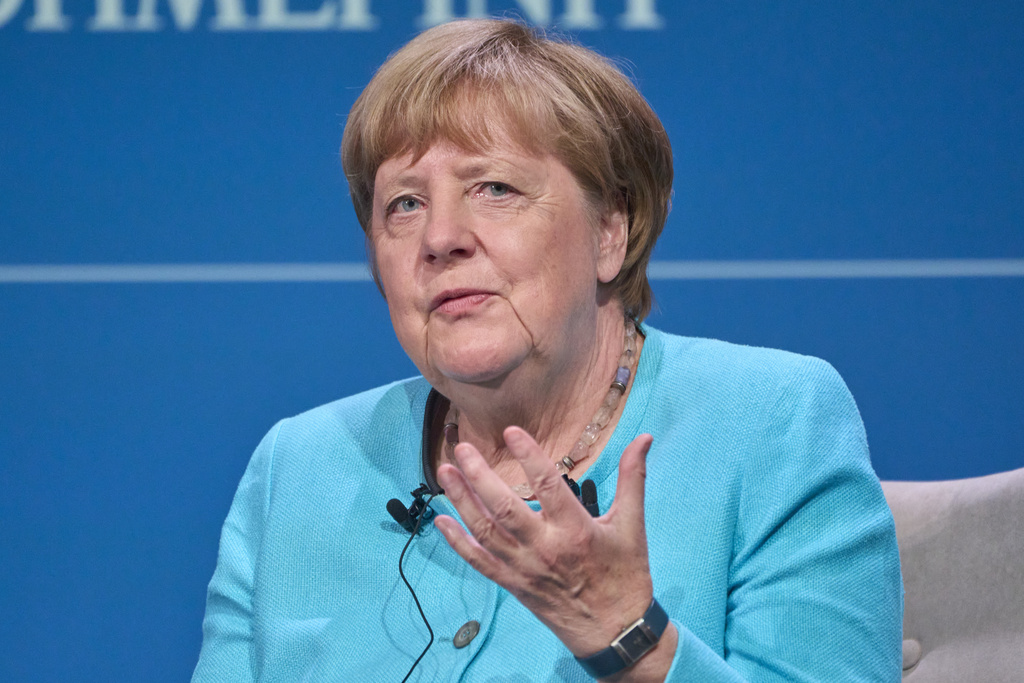Former German Chancellor Angela Merkel is making unexpected enemies and unlikely friends as she speaks candidly about her time in office while touring for her latest book.
Speaking with Hungarian opposition-aligned channel Partizán on Friday, Merkel was asked by host Marton Gulyas whether she believed Prime Minister Viktor Orban — a perpetual dissident in Europe regarding the Ukraine War — is a “Trojan horse” for Russia in the European Union.
“No, that’s nonsense. We wouldn’t fall for something like that,” Merkel replied. “I think it’s absurd.”
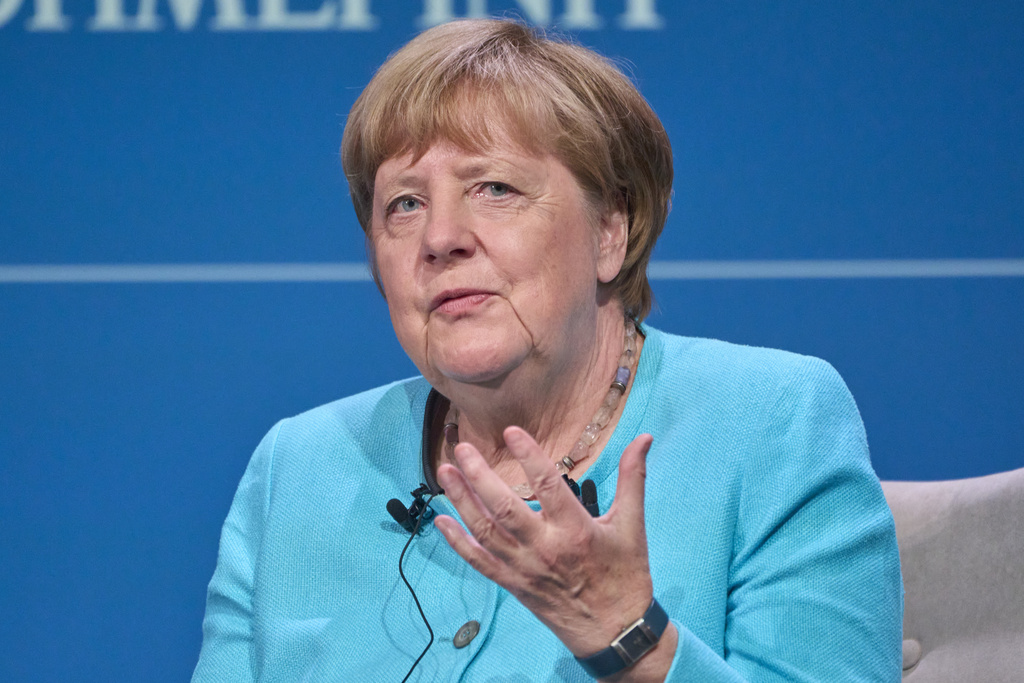 Former German Chancellor Angela Merkel speaks during the presentation of her book “Freedom” at the Stavros Niarchos Foundation Cultural Center in Athens, Greece, on Wednesday, July 2, 2025. (AP Photo/Petros Giannakouris)
Former German Chancellor Angela Merkel speaks during the presentation of her book “Freedom” at the Stavros Niarchos Foundation Cultural Center in Athens, Greece, on Wednesday, July 2, 2025. (AP Photo/Petros Giannakouris)
The former leader of Germany heaped an unexpected amount of praise on Orban, affirming that the Hungarian strongman fought fiercely for his own nation’s interests while they shared terms in office.
“Viktor Orban has always represented his own position on the European stage, and he often justified the Hungarian standpoint very well. But what mattered to me was that, in the end, we found common solutions,” Merkel said. “He is representing Hungary’s economic interests very firmly.”
Merkel’s book, Freedom, is a memoir recounting her time leading Germany and is widely considered an attempt to justify some of her most unpopular policies, particularly mass immigration into Europe.
She played a prominent role in opening Europe to migration from countries in the Middle East, coining her most famous slogan, “Wir schaffen das” (“We can do this!”) in 2015 as tens of thousands of immigrants arrived in the first wave.
Her role as architect of modern European migration policy, a system now widely panned across the continent, has left her less than popular in nationalist Hungary.
Orban, who rejected participating in the system introduced in 2015, has blasted fellow European Union member nations as misguided and eager to force similar social woes upon Hungary for years.
In a December 2024 speech, Orban referenced the Magdeburg, Germany, terrorist attack that killed five and injured hundreds, asserting that EU leadership “wants Magdeburg to happen to Hungary too.”
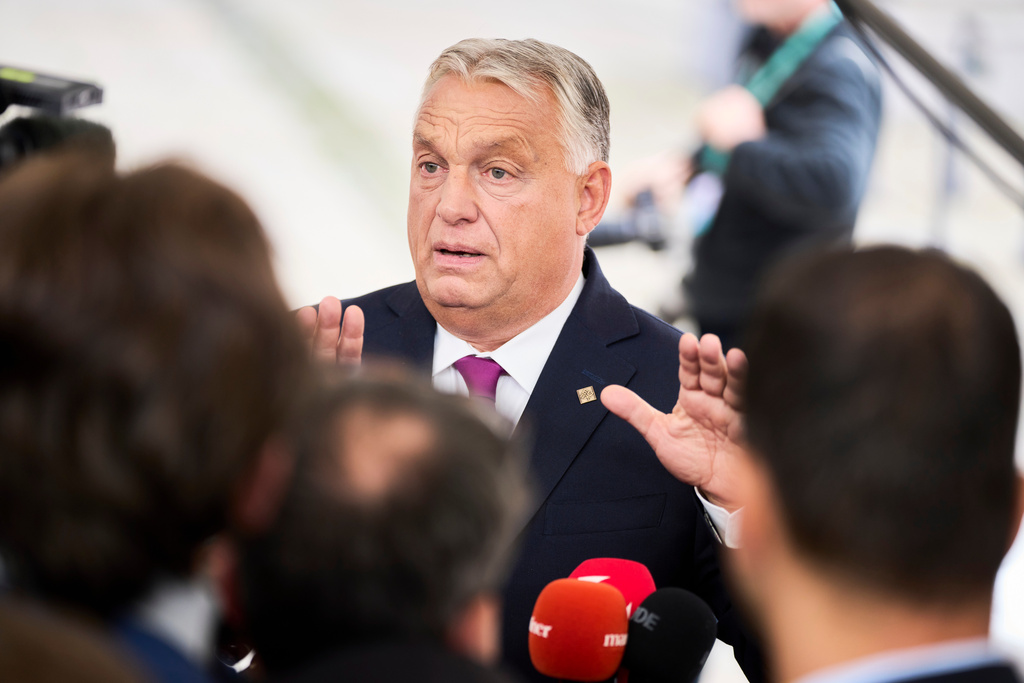 Hungary’s Prime Minister Viktor Orban arrives at an informal summit in the Danish parliament at Christiansborg Castle in Copenhagen, Wednesday, Oct. 1, 2025. (Thomas Traasdahl/Ritzau Scanpix via AP)
Hungary’s Prime Minister Viktor Orban arrives at an informal summit in the Danish parliament at Christiansborg Castle in Copenhagen, Wednesday, Oct. 1, 2025. (Thomas Traasdahl/Ritzau Scanpix via AP)
Merkel’s unexpected compliments came not long after she had a private meeting with Orban, and the two appear to enjoy a friendlier relationship than ever.
“Once a Chancellor, always a Chancellor in our eyes,” Orban captioned a photo with Merkel on social media. “Welcome to Hungary, Angela Merkel!”
But while the chancellor’s comments in the interview might have made a new friend in Budapest, she possibly made four enemies in the EU.
Discussing recent Russian aggression, Merkel laid the blame for the Kremlin’s attack at the feet of Poland, Lithuania, Estonia, and Latvia — claiming they failed to support efforts to negotiate with Russian President Vladimir Putin.
“In June 2021, I felt that Putin was no longer taking the Minsk Agreement seriously,” she recalled. “And that’s why I wanted a new format where we, as the European Union, could talk directly with Putin. This was not supported by some. It was mainly the Baltic states, but Poland was also against it.”
Merkel claimed the Eastern European nations were “afraid” that “we would not have a common policy toward Russia.”
“In any case, it didn’t happen,” she added. “Then I left office, and then Putin’s aggression began.”
Former Latvian Prime Minister Krisjanis Karins, implicated in Merkel’s assertions as the contemporary head of state, fired back days later and claimed the former chancellor had been naive during the discussions.
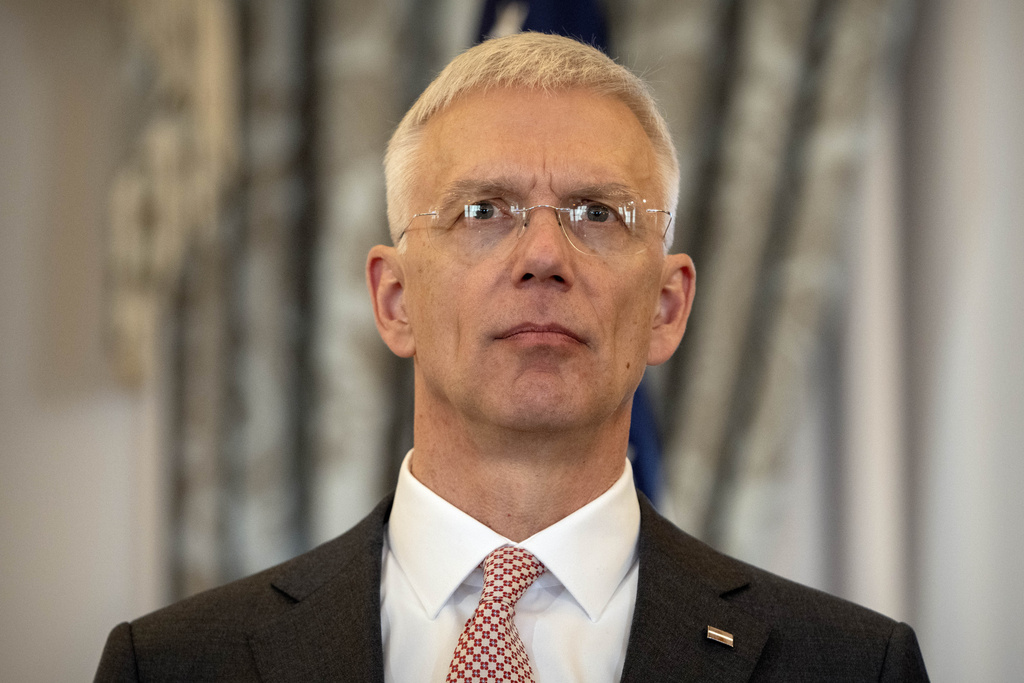 Latvia’s Foreign Minister Krisjanis Karins stands during remarks on the sidelines of a meeting with Secretary of State Antony Blinken and the foreign ministers of Estonia and Lithuania at the State Department, Monday, March 25, 2024, in Washington. (AP Photo/Mark Schiefelbein).
Latvia’s Foreign Minister Krisjanis Karins stands during remarks on the sidelines of a meeting with Secretary of State Antony Blinken and the foreign ministers of Estonia and Lithuania at the State Department, Monday, March 25, 2024, in Washington. (AP Photo/Mark Schiefelbein).
“I consistently told her that you cannot deal with Putin ‘in good faith,’ but she believed that the Baltic States were wrong. I was well aware of Merkel’s views, but I am astonished that after everything that has happened in Ukraine, she still thinks this way,” Kariņš said on Monday.
EUROPEAN SECURITY HINGES ON RUSSIAN-AMERICAN COOPERATION: HUNGARIAN MINISTER
“Putin acts the way he acts, and the only options for the West are either to submit or to resist,” he said. “It is surprising that the former German chancellor would say something like this today, when it should be obvious to everyone what kind of regime Russia is. I am glad that the new German chancellor, Friedrich Merz, does not share Merkel’s views.”
Estonian Foreign Minister Margus Tsahkna also criticized Merkel’s comments, asserting that “Russia alone” can be blamed for its own aggression.
“Russia’s war against Ukraine is driven by one thing and one thing only: its refusal to accept the Soviet Union’s collapse and its unrelenting imperialist ambitions,” he wrote on X. “Russia alone is to blame for this aggression.”
Polish news outlet TVP World reported that Foreign Minister Radoslaw Sikorski dismissed Merkel’s recollection of events, calling them “as true as what she said in her memoirs — that nobody from central Europe protested against Nord Stream.”
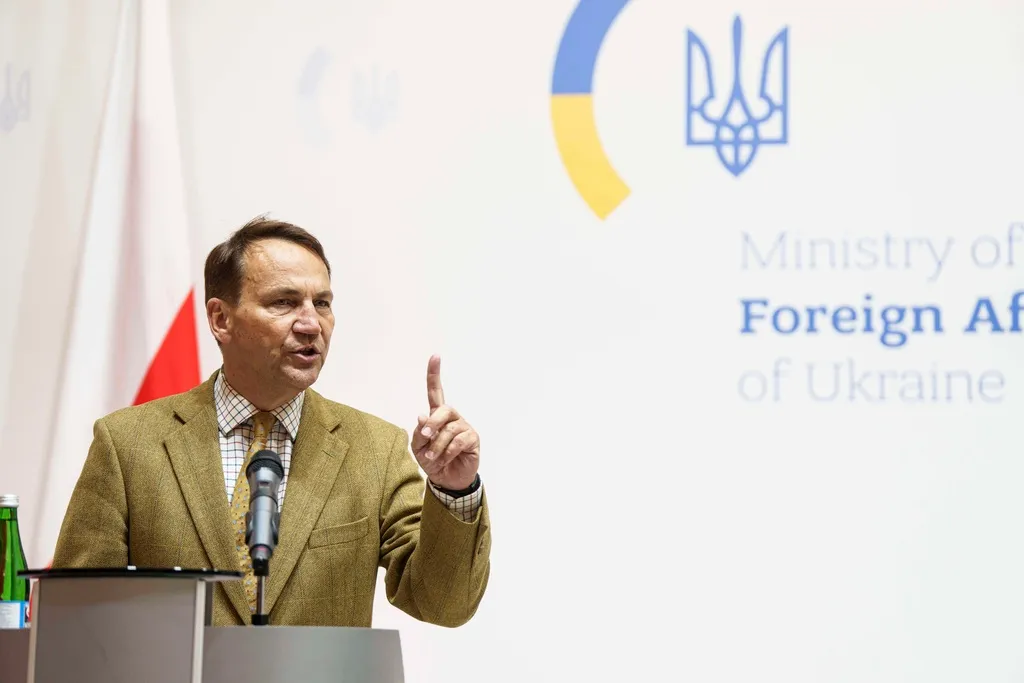 Poland’s Foreign Minister Radoslaw Sikorski speaks during a press conference with Ukraine’s Foreign Minister Andrii Sybiha in Kyiv, Ukraine, Friday, Sept. 12, 2025. (AP Photo/Evgeniy Maloletka)
Poland’s Foreign Minister Radoslaw Sikorski speaks during a press conference with Ukraine’s Foreign Minister Andrii Sybiha in Kyiv, Ukraine, Friday, Sept. 12, 2025. (AP Photo/Evgeniy Maloletka)
Germany and Russia completed the construction of the Nord Stream Pipeline in 2011, allowing the mass import of Russian oil to the continent without transportation through Ukraine or Poland.
The two nations vocally opposed the project, warning that it would increase European dependence on Russian fuel.
Merkel, who participated in the deal, previously defended her decision, stating that “from the perspective of that time, it was very rational and understandable to get pipeline gas, including from Russia, that was cheaper than LNG from other parts of the world.”
“Look at the German government’s reaction to what I said in 2007 about how we don’t like agreements made over our heads,” Sikorski said. “So the Chancellor must have forgotten how her own government reacted to our protests.”
The Nord Stream pipeline was hit with an explosive sabotage attack in September 2022.
A Polish court ruled Monday that a Ukrainian diver, identified only as “Volodymyr Z.,” will remain in police custody for another 40 days following his arrest last week in connection with the attack.
